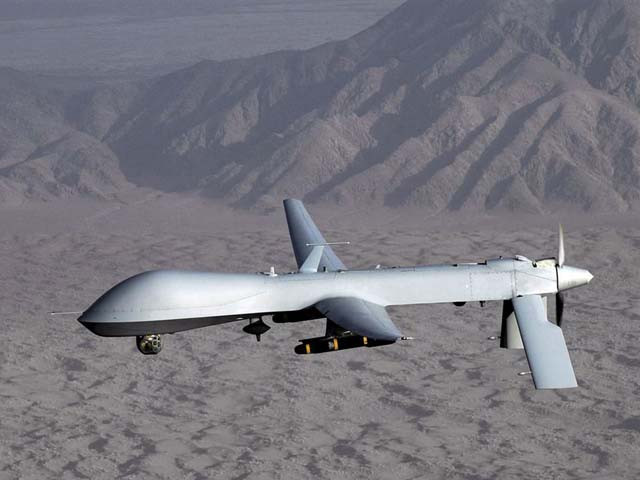According to reports, US officials do acknowledge a number of civilian casualties caused by the CIA's drone strikes. Although there is persistent debate on the exact number of such casualties, one thing is indisputable - the militants targeted by drones are said to be "suspected." How does one define a "suspected" militant?
According to me a "suspect" can be defined as some who is innocent until proven guilty. This is, if anything, quite a popular mantra in the west including the United States of America.
“Suspected” militants were among 72 people, including civilians, who died in an air strike in Tirah this April. This was the first time since the Taliban insurgency has begun in Pakistan, that the serving COAS General Ashfaq Pervez Kayani apologised to the families of the victims. If anything, the official apology of the COAS is commendable. But this certainly cannot bring the dead back to life or ease the pain of losing a loved one. When our military (or any military) "regrets the loss of innocent life" I ask, whose life is not innocent? We are all innocent.
When the US carried out drone attacks in 2004, I rose to speak against it. But then, the devastated corpses of children and women, who died a few days before the drone attack in an army air strike in Bajaur, flashed in front of my eyes. It was only then that I realised that if I'm denouncing the drone attacks, I should denounce what's happening at home too. As Darrow says “true patriotism hates injustice in its own land more than anywhere else.”
We must agree on one thing - lives are lost in wars. But I do not think actions can be divorced from the consequences.
One of the op-ed columnists at The New York Times writes:
“Of course, by acknowledging the drone strikes, the Obama administration would also have to admit that civilians are sometimes killed in these attacks. When Afghan civilians are killed by American forces, their families are often compensated by the United States. Surely, the families of Pakistani civilians killed in American drone strikes deserve the same.”
The suggestion is that the families of victims should be compensated by the United States. Thank you for such your immense generosity, sir. But let's ask ourselves: if a family consisted of three or four members all of whom meet their death in a drone attack - who would you compensate? Are you going to build a big mausoleum to honour them? How and why do they deserve this? Is the Pakistani blood so cheap?
The loss of 3,000 people in the 9/11 attacks is tragic indeed, perhaps more so because it resulted in the deadly Afghanistan war. Similarly, the loss of innocent lives in Iraq caused by the indiscriminate firing of American Blackwater mercenaries is a great loss too. The loss of innocent lives in drone attacks is also unwarranted and brutish.
Technology alone cannot win the war and technology alone cannot prevent people from miserable deaths.
According to reports, a good deal of the intelligence that enables drone strikes comes from Pakistanis. Someone with even an iota of understanding of Pakistani affairs understands that it's actually Pakistani intelligence agencies who provides the CIA with the information of when and where to hit next. Shall we call this a failure of Pakistani intelligence and the Pakistan army? When Pakistanis point their fingers at the army it may be for a valid reason.



COMMENTS
Comments are moderated and generally will be posted if they are on-topic and not abusive.
For more information, please see our Comments FAQ